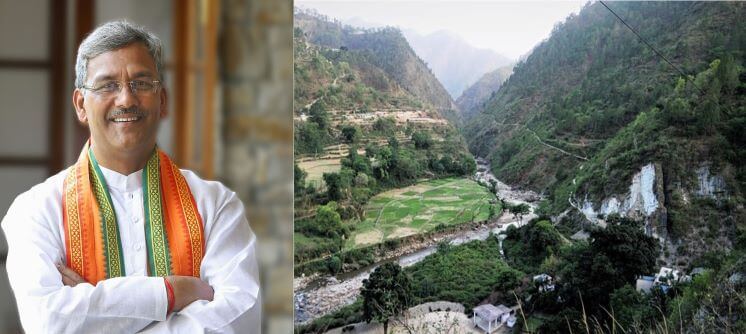Uttarakhand unveils EV Policy. Local hiring the fastest way to avail benefits
 Keeping it Green
Keeping it Green
The Uttarakhand state government has released ‘The Uttarakhand EV Manufacturing EV Usage Promotion and Related Services Infrastructure Policy 2018’ with a 5-year plan on 4th October. The Policy aimed at making the state a suitable hub of investment and employment in the EV manufacturing units and facilities. The move comes amid the Indian government’s massive push for electric vehicles’ adoption across the country and automakers have shown interest in investing in the upcoming segment. Just before state investment meet in Uttarakhand, Chief Minister Trivendra Singh Rawat said that investment proposals worth Rs 74,000 crore have been received by the Uttarakhand government and memorandum of understanding (MoUs) to the tune of Rs 60,000 crore signed with firms.

The state seeks to create a suitable ecosystem to support EV manufacturers and tackle vehicular pollution.
“The electric vehicle manufacturing policy aims to address the issue of energy security and vehicular pollution. It enlists a slew of incentives and exemptions to encourage startups to set up units for manufacturing electric vehicles,” minister Madan Kaushik said, while briefing reporters about the decisions taken at the Cabinet meeting chaired by chief minister Trivendra Singh Rawat.
Under its electric vehicle manufacturing and battery charging infrastructure promotion policy, a number of exemptions and incentives would be provided to entrepreneurs to set up electric manufacturing units. It seeks to draw investments in the EV battery manufacturing and assembling capacities, and develop charging and swapping infrastructure for EVs. The incentives are applicable to the manufacturers of hybrid vehicles as well.
Uttarakhand has come up with infrastructure facilities, loans, land and many more to facilitate the EV makers. Madan Kaushik also added that such entrepreneurs will be entitled to 100% electricity duty exemption too.
- It will offer term loans of Rs.100-500 million to micro, small and medium enterprises (MSMEs) to manufacture EVs.
- Manufacturing plants that have a minimum of 100 employees will benefit from government’s employee provident fund per company of Rs. 20 million.
- The state government has also planned to contribute around 30-50 per cent of overall Goods and services tax (GST) paid by the MSMEs for 5 years since their first day of production.
- Additionally, the firms must also employ around 70 per cent of its staff from the state itself to avail the incentives.
The policy did not forget the end consumers and came up with benefits for them too:
- The first 100,000 buyers of EVs in Uttarakhand will be exempted from motor vehicles tax for a duration of five years.
- This applies to the equal number of buyers purchasing commercial EVs or electric stage carriages as well.
- The state government has set a rule that land provided to EV manufacturing sector will not be utilised for other purposes till 15 years.
To avail incentives under this program, firms need to employ 70 per cent of their workforce from citizens residing in Uttarakhand.
The state government has aggressively been trying to join other states like Gujarat, Maharashtra and Karnataka who are ahead in the race to attract investments in the EV sector. In this race it has not forgotten other sectors like solar energy, food processing, herbal, organic, Ayush and tourism sectors in which entrepreneurs have shown great interest.
The state is unveiling nine policies to encourage investments include Mega Industrial Investment & Employment Promotion Policy 2018, Uttarakhand Solar Energy Policy, Uttarakhand Ayush Policy 2018, Biotechnology Policy 2018-23, Power Generation from Pirul and other types of Biomass Policy-2018, Uttarakhand Aroma Policy 2018, for establishment of Optical Fiber and Mobile Tower Guidelines Policy, Uttarakhand Electric Vehicle Manufacturing E.V.
Usage Promotion and Related Services Infrastructure Policy 2018 and Uttarakhand Tourism Policy 2018. Local people will be given projects up to 5 MW on priority as per Uttarakhand Solar Energy policy.
According to the Chief Minister Rawat, Power Generation from Pirul and other types of Biomass Policy-2018 will be important for the livelihood of people of hill areas. The chief minister said the policies were formulated incorporating suggestions made by entrepreneurs and business leaders at the road shows and after an in-depth study of the investment promotion policies of other states.




